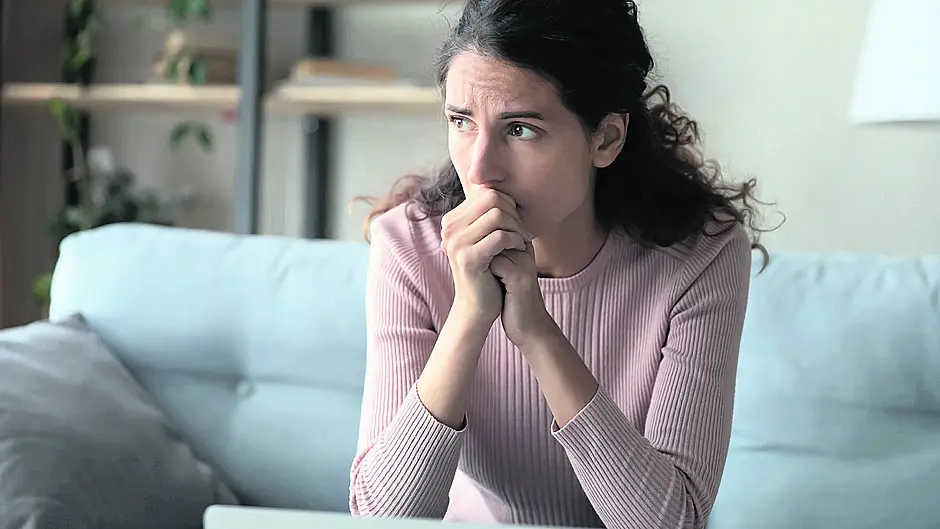Your Mental Health with Linda Hamilton, Cognitive behavioural therapist
TOO much safety can be dangerous.
I was thinking about this point after reading a recent article about a large number of children in New Zealand falling ill due to a Covid-related ‘immunity debt’.
At the time of writing, New Zealand had recorded only 26 coronavirus deaths since the pandemic began last year. Most commentators agree the country has navigated the pandemic very well.
It’s not just Covid that New Zealand has largely avoided. Lockdowns, social distancing and mask-wearing also curtailed the spread of other illnesses like flu, the common cold and RSV (respiratory syncytial virus) in New Zealand.
However, a recent study, the article reported, cautioned that while the absence of common respiratory illnesses is obviously welcome in the short term, it can create problems at a later stage: children don’t develop immunity if bacterial and viral infections aren’t circulating, eventually resulting in larger outbreaks down the line.
Many susceptible children ‘have missed out on exposure’, said epidemiologist and public health professor Michael Baker, ‘so now they’re seeing it for the first time’.
New Zealand aside, some epidemiological experts suggest that delaying the age at which people are exposed to certain pathogens can sometimes backfire. For example, certain pathogens may cause more severe disease among older people. Thus, limiting transmission may eventually result in an increased burden of disease, due to people not developing immunity when young and healthy.
Now, I am obviously not a medical expert and for all I know, an informed medic might well butt in here with all kinds of ‘yes, but...’ statements. So let me be clear: this is not my area and I’m not making any kind of medical point here.
Dealing with discomfort
Rather, the idea of immunity and exposure has some obvious mental health parallels. Put simply, an excessive focus on safety in everyday life is a really bad idea. And you know what’s a really good idea? Exposing oneself to feared situations and to discomfort in general. As a cognitive behavioural therapist (CBT), much of my work focuses on helping anxious people to get comfortable with discomfort. Gradually exposing yourself to feared situations is an evidence-based treatment for all forms of anxiety. Exposure therapy is incredibly valuable when treating obsessive-compulsive disorder (OCD) or phobias, but it’s equally relevant to treating any form of anxiety, whether that be panic disorder, social anxiety, health anxiety or generalised worry and anxiety.
Safety behaviours
All forms of anxiety are characterised by safety behaviours. A safety behaviour refers to any behaviour aimed at reducing discomfort and uncertainty – for example, reassurance-seeking, over-preparation, over-planning and information-seeking, avoiding feared situations, and so on.
Avoidance and safety-seeking only ever leads to more avoidance and safety-seeking. The more you avoid, the more you need to avoid. You lose confidence in yourself and your ability to cope. You may not notice it initially, but your life becomes smaller and smaller over time.
Similarly, you may find you try to manage anxiety by trying to control your environment – for example, by always making lists, by planning your every move, or doing various other things to try and make sure nothing goes wrong – but ultimately, this will also backfire.
Tolerance of uncertainty
Trying to control one’s environment reflects a fear of the unknown. It is an attempt to reduce uncertainty, but we can only control so much in our world.
Unexpected obstacles crop up all the time. Life is an uncertain business, which is why becoming tolerant of uncertainty is such an important life skill.
If you behave as if uncertainty is the enemy, then you are more likely to feel destabilised and upset when the unexpected happens. The more you seek safety and control, the less safe and in control you feel when you inevitably encounter newness and change.
In contrast, exposing yourself to discomfort helps build psychological immunity. You feel stronger when confronted with uncomfortable situations; you think, this isn’t easy, but I’ve done difficult things before, I can handle this.
The biggest risk you can take is to try and live a risk-free life.
It won’t work and will leave you feeling more anxious, not less. Instead, remember that exposing yourself to uncertainty and discomfort will build up your immunity to those same forces.
Linda Hamilton is a Kinsale-based cognitive behavioural therapist.
If you would like to get in touch with her, call 086-3300807
For more information, go to www.kinsalecbt.com








